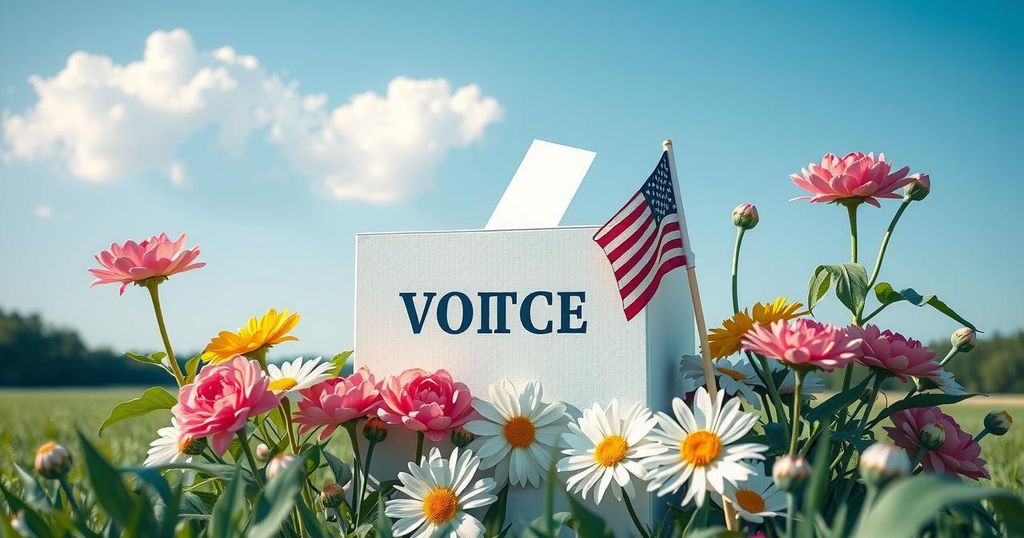World news
ASIA, CHRISTIAN, CHRISTIANE AMANPOUR, CNN, CONGRESS, CORRUPTION, DANIEL NOBOA, DEMOCRACY, DONALD TRUMP, ECUADOR, GLAS, GONZÁLEZ, GONZALEZ, GUILLERMO LASSO, JORGE GLAS, LASSO, LUISA GONZÁLEZ, LUISA GONZALEZ, MEXICO, NO, NOBOA, NORTH AMERICA, PHILIPPINES, POLITICS, QUITO, SOUTH AMERICA, TRADE RELATIONS, TRUMP, UNITED STATES, US
Jamal Robinson
0 Comments
Ecuadorian Presidential Election Highlights Challenges of Violence and Energy Crisis
Ecuador is set to hold a presidential election amid severe security and energy crises. Incumbent Daniel Noboa seeks continuation of his policies against crime, while Luisa González offers alternatives rooted in previous administrations. The election reflects the critical need for effective governance to address these pressing challenges, including drug trafficking and energy shortages and the overall economic situation.
Ecuador is poised for a presidential vote on Sunday, marking the second election in just 18 months amidst a significant security crisis. Current President Daniel Noboa, who was elected in 2023 to complete Guillermo Lasso’s term after Lasso’s resignation, is seeking approval for his policies in confronting rampant crime, while political rival Luisa González presents an alternative vision.
Daniel Noboa, aged 37, emerged as an unexpected victor in the 2023 elections after defeating Luisa González. He identifies as “center-left” but has adopted a hardline stance on crime, declaring multiple states of emergency to address gang violence. Noboa has made controversial moves, including a bold operation to arrest a former vice president seeking asylum.
The incumbent has strengthened relations with the United States, ratifying military cooperation agreements and advocating for a U.S. military base to combat drug trafficking. He focuses on public infrastructure investment and aims to tackle Ecuador’s financial deficit by increasing Value-Added Tax.
Facing a competitive field that includes 14 candidates, Noboa’s primary challenger, Luisa González, aims to revitalize Correa-era policies. Supported by former President Rafael Correa, who is currently in exile, González has pledged a vigorous approach to the drug issue, emphasizing investment in facial recognition tech and addressing prison management issues.
Ecuador is grappling with an alarming spike in violence due to its position as a cocaine trafficking hub. The homicide rate has more than tripled from 2021 to 2023, although the government reports a recent decline. This surge in organized crime has led to the assassination of political figures and rampant corruption.
Other pressing issues include the El Niño-induced drought that has severely impacted hydroelectric power production, leading to power rationing across Ecuador. This energy crisis has been exacerbated by broader economic challenges, including a high rate of informal employment, leaving significant gaps in potential tax revenue. Experts warn that the incoming president will face the daunting task of reviving an economy at risk of collapse.
Ecuador is currently in a state of turmoil characterized by escalating violence and an energy crisis, necessitating a critical presidential election. Following Guillermo Lasso’s resignation, Daniel Noboa stepped in to complete his term and now seeks public approval for his governance. The election is essential in determining the country’s future direction amidst these pressing crises.
In conclusion, the upcoming presidential election in Ecuador represents a crucial moment for the nation’s future amidst heightened violence and energy shortages. With candidates promoting differing approaches to crime and economic recovery, the decision of the electorate will significantly impact Ecuador’s ongoing security and economic challenges, as well as its relations with international partners. The dynamic political landscape, marked by past presidencies and current crises, sets the stage for a pivotal election.
Original Source: www.cnn.com




Post Comment